|
One of the great gifts of the Second Vatican Council and the liturgical renewal of the twentieth century was the emphasis given to the proclamation of the Word of God at all sacraments, primarily at the celebration of Mass. Popes, bishops, and theologians have all sought to highlight the relationship of the life of the Church in every dimension to the Sacred Scriptures. Scripture is the foundation of all that we do as Catholics, ultimately because Scripture is the Word of God. These divinely revealed truths tell us who God is, what He has done throughout history, and what he continues to do, working in our lives each day. Pope Francis, in continuing this call for a renewed sense of awe and appreciation of the Word of God, has proclaimed the third Sunday of Ordinary Time as “Word of God Sunday.” This past Sunday, January 26, was the first observance of Word of God Sunday, and so this week is a great time to reflect on the role that Scripture has in our lives as we seek to model our lives on Jesus Christ, the Word of God. In reflection, we can ask how do we allow the scriptures to permeate our lives so that God’s word is alive in us? Maybe we have a favorite passage, one that we return to again and again to meditate on at different stages in our lives. Or maybe we haven’t really spent much time with Scripture, aside from hearing it at Mass or other occasions in Church. This week, this Word of God Sunday, serves as a reminder to take the gift of Scripture and to allow the Word of God to seep into the rhythm of our lives so that we more fully and deeply come to know our Lord and ourselves. One of my favorite passages of Scripture is from the 24th chapter of the Gospel of Luke following the Resurrection of Jesus. We hear of the encounter that two disciples had with our Lord while walking on the road to Emmaus. These two disciples were stunned at what had taken place and were unsure of what to make of the crucifixion and death of the man they believed to be the Messiah. They were sad that their friend and leader, Jesus, had been so cruelly murdered, and were overcome with grief. When they encounter this man, a man they “were kept from recognizing” (Luke 24:16), he asked them to recount these events. Their almost sarcastic response – “Are you the only stranger in Jerusalem who does not know the things that have taken place there in these days?” (Luke 24:18) – shows us how human an experience this was for the disciples. They explained everything to this man and were shocked that he had no idea what had happened. Little did they know, they were speaking with Jesus himself! So often we focus on one problem or another, are so concerned with our own difficulties, or so caught up in our joys that we forget to consider how the Lord is working in our lives. We don’t always welcome him in and we neglect to see that, in reality, he has been there all along, walking with us on the way. Sometimes, like these two disciples, it is not until later that we see God’s work in our lives, only in reflection. It was not Jesus’ explanation about the work that God has done since Moses and the prophets that opened their eyes to the reality before them. St. Luke tells us, instead, that “was made known to them in the breaking of the bread.” (Luke 24:35) Isn’t this our experience today? We come to know about God through study or reading. But it is in and through the sacraments – especially in the Mass – that we come to know God most fully. When we pray with the Word of God in Sacred Scripture, we open our hearts to an encounter with the living God. We may not recognize him right away—it may take time or a change in our life to make it clear—but those moments when we have a real encounter with God can show us how much he has done in our lives, how close he has been all along, teaching us, guiding us, and preparing us for the great things he has in store. May this Word of God Sunday be a new invitation to welcome the Lord into our lives through his Word. May our hearing and reading of Sacred Scripture always be an encounter with God.
0 Comments
“God withholds Himself from no one who perseveres.” –St. Teresa of Avila, Doctor of Prayer Perseverance always sounds nice; you hear the word and think “yes--I can do this!” Lately, I’ve been struggling to persevere in prayer. To combat this, I’ve found my American industriousness kicking in—resulting in my desire to impose on myself a strict prayer routine akin to that of St. Teresa’s (“If I just work hard enough, I’ll be levitating like St. Teresa in no time!”) only to wonder why it all seems to fall apart after 2 days. Discouragement soon follows, and I feel like I’m back at the beginning. I have fallen into this trap several times since I started taking my spiritual life seriously a few years ago. At the beginning, persevering in prayer and good spiritual habits can seem daunting. But the need for perseverance is a normal part of our spiritual journey. Sometimes prayer comes easily, sometimes we struggle to quiet our minds. As St. Josemaria Escriva said, “As the flames of your first enthusiasm die down, it becomes difficult to advance in the dark. —But that progress is all the more reliable for being hard. And then, when you least expect it, the darkness vanishes, and the enthusiasm and light return. Persevere! (Furrow No. 789)” It wasn’t until I heard the same advice from my spiritual director for the 100th time, combined with many Catholic podcasts and YouTube Videos, advice from friends, and books, that it finally dawned on me: you can and should tailor your spiritual life to fit your state in life and your personality! In doing so, you will find the strength to persevere. I made the mistake of thinking that the only way to grow in holiness was to follow the exact path of my favorite saints, only to end up frustrated as to why it wasn’t working or giving me any peace. After this struggle, I’ve learned four simple tips that have helped me develop better habits and persevere (and grow!) through a better spiritual routine.
As St. Francis de Sales also said, “Do not wish to be anything but what you are, and try to be that perfectly.” Get to know yourself, what spirituality works for you, and persevere! For more resources to deepen your spiritual life, click here. While I was speaking with a priest not very long ago about young adult ministry and how to grow a community of young adults in my area, he said something which felt as if someone was smacking me on the head. Almost in passing, he remarked, “We must share the teachings of Jesus in such a way that people become disciples of Christ and not consumers of Christ.” I am sure this was not the most significant thing that he was getting at, and it was not the focus of our conversation. However, as I was driving home from that meeting, I could think of little else. As I reflected on this, I was reminded of a fundamental aspect of our faith. We are called to be in relationship. In a way, all the stories throughout the Bible, from Moses in the Old Testament to the teachings of Jesus in the Gospels, are about forming and maintaining relationships. Relationship is everything—relationship with God, our fellow brothers and sisters, and (as Pope Francis explained more recently in Laudato Si’) creation. Someone who is in a true relationship with God, humanity, and the environment will be seen as a disciple of Christ and not a consumer of Christ. But how do we do this? How do we realize the value in relationships? First, we must drop the idea that we deserve our relationship with Christ. Too often we seem to walk into the church on Saturdays to take the sacrament of reconciliation, or on Sundays to take the sacrament of Holy Communion just as if we were walking into a Starbucks and placing an order. But the sacraments are not about taking, they are about receiving. I think a “graduation mentality” can enter into our faith life at times: we can partake in the sacraments as something which we have earned. To take something is to only recognize the one who takes. To receive something is to recognize not only the receiver but also the giver. To receive something is to form a relationship. In taking the time to understand this difference, I realized the importance of being a disciple of Christ and not simply a consumer of Christ. Being a disciple is being open to those relationships, and taking an active part in them. This sounds simple, but simple does not mean easy. How then do we fully partake in these relationships? This is the second part of what it means to be a disciple. We must truly understand that a relationship takes two to work. Again, this sounds simple but it is not easy. For those of us who are outgoing it can be difficult to listen, and it can be difficult for those of us who are comfortable in our silence to speak. However, it is important that we do both! We must be able to voice our opinions, positions, and thoughts just as we must be able to listen to our God, our family, our friends, and to creation. Doing this can be uncomfortable at times. We will have to participate when we do not want to, and we will have to wait patiently when all we want to do is speak. This giving and receiving is manifested in the structure of the Mass. We give God our prayers, attention, and hearts, and he gives us himself through his Word and the Eucharist. This touches on another aspect of relationships – action. Relationships are not only about speaking and listening, but also about the actions we take to fulfill the words we speak. Jesus did not simply talk about giving up his life for our salvation. He endured the scourging at the pillar, the carrying of the cross, and his crucifixion to redeem us. The perfection of his actions opened up the possibility for us to be in perfect relationship with our Savior, our Creator, and all of creation. Relationships can be messy. In order to be disciples of Christ, we must put away our spiritual debit cards and throw away our transactional faith mentality. Being a disciple of Christ is about being in and building relationships. It is not easy, but sacrifice never is. We are called to be disciples of Christ, not consumers of Christ. To learn more about what it means to be a disciple, please click here. 10/24/2018 #Synod2018 Alive Among the Faithful: A Reflection on the Canonization Mass of October 14, 2018Read Now“We declare and define Blessed Paul VI, Oscar Arnulfo Romero Galdámez, Francis Spinelli, Vincent Romano, Mary Catherine Kasper, Nazaria Ignacia of Saint Teresa of Jesus March Mesa and Nunzio Sulprizio to be Saints and we enroll them among the Saints, decreeing that they are to be venerated as such by the whole Church.” -Holy Mass and Canonization of the Blesseds: Paul VI, Oscar Romero, Francesco Spinelli, Vicenzo Romano, Maria Caterina Kasper, Nazaria Ignazia di Santa Teresa di Gesu, Nunzio Sulprizio This was the moment I had waited months to experience: the official canonization of these seven men and women. This past May, I knew I would be studying in Rome for my fall semester of sophomore year. I wanted to know what, if anything, would be happening during my time in Rome. Little did I know that I would be blessed with attending a canonization Mass. I’ll say it again if you didn’t catch my excitement the first time: a CANONIZATION! But at this moment I know some of you are asking, “Tom, what is a canonization?” Well, I’m glad you asked, inquisitive reader. A canonization occurs when the Catholic Church formally recognizes that someone who has lived an exemplary life of holiness and virtue is now in heaven with God and can be prayed to and venerated in all the Catholic churches throughout the world. With this solemn declaration, they are added to the official canon, or list, of saints. The Catechism of the Catholic Church puts it this way: “by solemnly proclaiming that they practiced heroic virtue and lived in fidelity to God’s grace, the Church recognizes the power of the Spirit of holiness within her and sustains the hope of believers by proposing the saints to them as models and intercessors.” The next question you probably have is, “Tom, you said you waited months for the canonization Mass. Why were you so excited?” Dear reader, what a wonderful question! The answer is that I love the saints and want to grow in my relationship with as many of them as I can, in as many different ways as I can, because they are examples to all Catholics of how to live for Jesus Christ in this world. This canonization Mass was a once-in-a-lifetime way for me to exercise this desire. This is further illustrated by a beautiful and unintended consequence of my studying in Rome and attending the canonization Mass: I got to tangibly experience the saints. Let me explain. When I prayed at St. Peter’s tomb and later read the passage about how he walked on the water toward Jesus, I thought: “Woah, the Peter I’m reading about is the same Peter whose tomb I just prayed at.” When I prayed before the skull of the young Saint Agnes, I thought: “This is the skull of the patroness of my diocese. That’s amazing.” As my friends and I waited to enter St. Peter’s Square, we talked to a woman from El Salvador who listened to Oscar Romero’s homilies and was 19 years old when he was assassinated. She told us that when he was killed, she felt as if she had lost her own father. After she said this, I thought: “I have read about Oscar Romero’s life and sacrifice and how much he influenced the Salvadoran people, but I didn’t truly grasp it until I heard this story.” And that is the lesson: Catholicism isn’t dead—not even close. It is fully alive! It is an encounter with Jesus Christ through His saints who are alive among His faithful people here on earth! A final question you may have for me, and a question that I asked myself, is: “What lessons can we learn from these seven saints?” I believe we should emulate Pope Saint Paul VI’s fortitude for defending the truth of the Catholic faith, Archbishop Saint Oscar Romero’s passionate love for the poor and oppressed in our midst, Saint Francis Spinelli’s devotion to the Most Blessed Sacrament, Saint Vincent Romano’s zeal for the Word of God, Saint Mary Catherine Kasper’s “openness to the Holy Spirit,” Saint Nazaria Ignacia’s caring heart, and Saint Nunzio Sulprizio’s youthful devotion to the sufferings of Christ. I encourage you all to learn about these seven saints and as many saints as you can, and then to go tangibly experience them, however you can. Please click the following links for more resources on the canonization of Paul VI and Oscar Romero. In my work at the Catholic Apostolate Center, and as a self-identified millennial, I am frequently asked: "How can we bring young people back to the Church?" It's a question I get asked a lot by people who are my parents’ age and older, mainly because they see their children, grandchildren, or nieces and nephews ‘willingly’ leaving the Church. Fortunately, our Church across the globe is also asking this very question during its October 2018 synod on Young People, the Faith, and Vocational Discernment. In preparation for the synod, the Vatican recently released the Instrumuntum Laboris (Latin for "working instrument") for the bishops of the world to review, discuss, and offer insights to Pope Francis. The document talks about the challenges that face young people, classified as those aged 16-39, in the Church and world today—from being an individual in a global society, to finding meaning in life, to living in an increasingly materialistic world, etc. —and then discusses possible solutions to these problems. The document suggests that solutions for individuals vary, but that all begin with discernment through accompaniment. When we speak of accompaniment, we might think of one person who helps another work through some difficulty by offering insight or expertise on how to overcome it – kind of like a coach. Instrumuntum Laboris, however, emphasizes that the accompaniment is not just a simple form of coaching, but rather: "...true accompaniment will strive to present vocation not as a pre-determined fate, a task to be carried out, a ready-made script, to be accepted by discovering how to implement it effectively. God takes seriously the freedom He has given to human beings, and responding to his call is a commitment that requires work, imagination, audacity and willingness to make progress also by trial and error" (Instrumentum Laboris, 121). It is through accompaniment that young people (and by extension all people) can understand the power of God in their lives because they see God working through that other person. This mentor helps the young person to see how God calls each and every one of us to be a messenger for the Word of God. The mentor also helps the young person to discover the best way to use his own talents and gifts for the Mission of the Church. The hope is that through this pairing, the spiritual growth of the individual will lead to the spiritual growth of the universal Church. Now the next questions to ask are: "Who is a mentor? What does a mentor look like?" Our Bishops and Magisterium have wisely begun to ask this question as well and have devoted an entire section of Instrumentum Laboris to mentorship and the ideal mentor: "[A mentor is] a faithful Christian who engages with the Church and the world; someone who constantly seeks holiness; is a confidant without judgement; actively listens to the needs of young people and responds in kind; is deeply loving and self-aware; acknowledges their limits and knows the joys and sorrows of the spiritual journey ... mentors should not lead young people as passive followers, but walk alongside them, allowing them to be active participants in the journey" (132). From my experiences with my mentors and as a mentor myself, as well as the experiences of friends and co-workers, I understand that active participation is the key. Unlike a coach who watches his players from the sidelines, a mentor is someone who walks with his mentee on the journey to holiness, allowing himself to grow in holiness as well. Spiritual accompaniment, as the document states at different points, is not easy—in fact it is quite difficult. It requires a deep love of Church, confidence, humility, self-awareness, and commitment. It takes time and dedication, like all strong relationships do. It requires an understanding that our faith is not passive, but rather a calling "to go and make disciples of all nations.” We are all called—priests, religious, and lay—to be mentors to those of all ages, demographics, and steps in their faith journey. Let us pray that God reveals to us those whom we are called to mentor and that we have the courage and strength to walk alongside them in our shared pursuit of holiness. Question for Reflection: What aspects of myself are well suited to mentorship? How can I continue to develop those traits or skills?
When I was in 8th grade, I helped teach for my parish’s religious education program and counted the hours toward my required community service time before receiving the Sacrament of Confirmation. I was an assistant for the 5th grade, and I thought it was the coolest thing. I could share with the class what I knew about the Church, even teaching them at one point how to pray the Rosary. Looking back, it seems like I was destined to teach in a Catholic school! After college, I began working at my current school in the Archdiocese of Washington (ADW), where I continue to teach and share my faith with the students. To this day, I continue to teach religion. I strive to form my students as disciples according to six elements of Catholic life: Knowledge of the Faith, Liturgy and Sacraments, Morality, Prayer, Education for Living in Christian Community, and Evangelization and Apostolic Life.
For catechists who actively pass on the Word of God to others, teaching the faith can become almost second nature. For instance, at my school, we incorporate core Jesuit principles into the curriculum each day and reflect on our own actions through prayer. In my pre-K classroom, we use these principles to talk about kindness and loving others as St. Ignatius taught. In a special way, my students are learning how to be good friends and love others the way Jesus did. In the Archdiocese of Washington (ADW), the religious curriculum has standards by which its content is measured and assessed—like any other subject area in school. In fact, ADW is trying to support catechists to do more to collaborate and keep kids engaged and excited about learning their faith. Professional development of catechists is crucial to a school, parish, or community. Learning how to be better witnesses of the faith ensures that our children are receiving the best formation of conscience they can get. Although there are people certified and educated to teach as catechists, most of us are already fulfilling that duty as faith-filled adults in the Church who witness to and spread the Gospel. Below is a list I have compiled of a description of a catechist. After reading it, do you feel called to become one?
For more information, we invite you to view the following webinar at the bottom of the page:
Question for Reflection: How can you teach the faith to others in your everyday life? *This post was originally published in May 2017* This is such a rich time for us as Catholic Christians! Within the past month, we’ve begun a new liturgical year, celebrated in praise and thanksgiving the Nativity of our Lord, the Holy Family, and the Blessed Virgin Mary, and we continue to celebrate as we approach the Epiphany of our Lord. It is quite difficult to wrap our hearts and minds around the richness that has been available to us over these past four weeks in the midst of the hustle and bustle of the holiday season. Among the chaos of planning and celebrating, we have also rung in a new calendar year. 2017— with its successes, failures, struggles and triumphs—has come to a close and we stand at the precipice of 2018. We all know what that means: New Year’s resolutions. Are you hoping for more control over your health, finances, or career? Perhaps you are hoping to find more time to pray and manage stress in your life. What is it that you are hoping to gain control of this year or to do more regularly? As we prepare to choose and implement changes that we would like to make in our lives, let us not forget that we are still in the midst of celebrating the Word made flesh, Emmanuel. The change and possibility of a baby, born in a humble manger, is reflected in the beginning of a new year. Is our gaze still fixed on the babe in swaddling clothes? What would 2018 bring if instead of resolving to gain control of our lives, we truly allowed the Messiah to be Emmanuel, God with us. Jesus is waiting for each and every one of us to echo the “yes” that was uttered by the Holy Family as they welcomed Him into their lives. What if instead of resolving to control everything, we resolved to say yes to that tiny baby born of a Virgin? During one of the Advent homilies at our parish, our pastor challenged us to think about times we have attempted to be the messiah of our own lives by trying to grasp or control various situations or circumstances. During this time of change and resolution, it can be tempting for us to forget that we are not the Messiah as we make plans and goals for the upcoming year. As I reflect on this, I am reminded of the words of the hymn “These Alone Are Enough” by David Schutte, based on the Suscipe prayer of St. Ignatius of Loyola: “Take my heart oh Lord. Take my hopes and dreams. Take my mind with all its plans and schemes. Give me nothing more than your love and grace. These alone, oh God, are enough for me.” It is good and just to strive to improve our character and to foster good and healthy habits in our lives. However, instead of resolving to do it on our own, by the gift of that blessed Christmas morning, we have the choice to freely give all of these things over to the One who makes all things new. As you stand at the threshold of this New Year and envision your hopes and dreams for 2018, take a moment to reflect on what these possibilities could become if you allowed them to be infused by the abundant grace of God. It is still the Christmas season. There is still time to approach the manger. Take the leap of faith. Instead of resolving to gain control, approach the manger and resolve to say YES and to be transformed! Resolve to offer the babe in swaddling clothes your mind, your heart, your body, and soul. As you boldly step out into 2018, my prayer for you echoes the words of Saint Paul, “May the God of peace make you perfectly holy and may you entirely, spirit, soul, and body, be preserved blameless for the coming of our Lord Jesus Christ. The one who calls you is faithful, and he will also accomplish it.” Question for Reflection: What are some resolutions you can hand over to the Lord this New Year? Not long ago, I sat listening to the words of my university’s honored commencement speaker, Peggy Noonan, who entreated us to do something after we graduated that day: “You must not stop reading books. That’s all. If you seek a happy and interesting life, one of depth, meaning and accomplishment, you must read books.” I thought that to be a simple message—but refreshingly concrete and unique. As she pointed out, to get to graduation day my peers and I had read a number of books. Most were works assigned as required reading for a course rather than for leisure. Continuing to read after a life in school would benefit us, Noonan said, as we moved through life to new places, with new people, and into new positions.
As a Catholic, I took Ms. Noonan’s advice as an opportunity to seriously take up spiritual reading. I previously had taken advantage of my Catholic high school’s library to some degree, but I often had to let spiritual reading take second place behind the demands of other commitments. This continued in college with the much larger university library collections. There seemed to be no time to read for the sake of reading, spiritual or otherwise. While I may not have had much choice at the time, I know that when the faithful disregard the great literary works of Catholicism, we do ourselves a great disservice. With its full and ever-expanding breadth of writings, the Church encourages the faithful to enrich themselves through the works of popes, saints, and the Magisterium, along with theologians, mystics, clergy, and religious (see CCC 133). These can offer many insightful perspectives on the Faith, but they cannot replace reading the Bible! As St. Jerome remarked, “Ignorance of Scripture is ignorance of Christ!” Similarly, the Second Vatican Council affirmed the Word of God as “food for the soul, the pure and everlasting source of spiritual life.” (Dei Verbum, 21) We may spend years studying books for school and for professional development—how much more should we pore over the Word of God “to build you up and give you your heritage among all those who are sanctified”? We nourish ourselves with physical food multiple times a day, shouldn’t we do the same with spiritual nourishment? When I worked in a Catholic bookstore, my boss shared this insight from St. John Bosco: “Only God knows the good that can come about by reading one good Catholic book.” Customers might have wandered in to buy a rosary or Catholic memorabilia, but many times I noticed them stop in front of a display of books on family life, spirituality, or healing prayers. As I assisted them with their selections, many would share their favorite devotions or ask for guidance in selecting a title. The customers were seeking writings by those whose experiences they could relate to—authors whose work would speak to our customers just as Sacred Scripture speaks to each of us and motivates us to seek and undertake the will of God. On other occasions, customers would simply be looking for something new to deepen their spirituality and share what they learned with their family and friends. I have observed that the benefits of supporting Catholic bookstores extend in many ways: not only does it help a business to continue providing accessible, quality literature, but it also offers customers the chance to find something meaningful and wholesome that will be useful in subsequent questions, reflections, and experiences long after the first reading. Consider dusting off your Bible or picking up that Catholic book on your table. Spend a few moments and allow yourself to be touched by the author’s message and then share the experience with loved ones. Start a book club with friends and neighbors to discuss a spiritual work and apply it to your day to day life. The words of an approved source can galvanize, console, clarify, educate, or guide your spiritual formation. As Ms. Noonan reminded us, continual reading throughout our lives, especially of spiritual works, will give our lives greater depth and meaning. Start by picking up the book. Questions for Reflection: Is there a spiritual book or book from the Bible you’ve been meaning to read? How has a book or Scripture passage impacted your life? When I was in 8th grade, I helped teach for my parish’s religious education program and counted the hours toward my required community service time before receiving the Sacrament of Confirmation. I was an assistant for the 5th grade, and I thought it was the coolest thing. I could share with the class what I knew about the Church, even teaching them at one point how to pray the Rosary. Looking back, it seems like I was destined to teach in a Catholic school! After college, I began working at my current school in the Archdiocese of Washington (ADW), where I continue to teach and share my faith with the students. To this day, I continue to teach religion. I strive to form my students as disciples according to six elements of Catholic life: Knowledge of the Faith, Liturgy and Sacraments, Morality, Prayer, Education for Living in Christian Community, and Evangelization and Apostolic Life.
For catechists who actively pass on the Word of God to others, teaching the faith can become almost second nature. For instance, at my school, we incorporate core Jesuit principles into the curriculum each day and reflect on our own actions through prayer. In my pre-K classroom, we use these principles to talk about kindness and loving others as St. Ignatius taught. In a special way, my students are learning how to be good friends and love others the way Jesus did. In the Archdiocese of Washington (ADW), the religious curriculum has standards by which its content is measured and assessed—like any other subject area in school. In fact, ADW is trying to support catechists to do more to collaborate and keep kids engaged and excited about learning their faith. Professional development of catechists is crucial to a school, parish, or community. Learning how to be better witnesses of the faith ensures that our children are receiving the best formation of conscience they can get. Although there are people certified and educated to teach as catechists, most of us are already fulfilling that duty as faith-filled adults in the Church who witness to and spread the Gospel. Below is a list I have compiled of a description of a catechist. After reading it, do you feel called to become one?
For more information, we invite you to view the following webinar at the bottom of the page:
Question for Reflection: How can you teach the faith to others in your everyday life? “Good morning and welcome to St. Michael Catholic church. Before Mass begins, we invite you to take a moment to greet those around you.”
I was on vacation at the time I heard these words, and thus totally unfamiliar with the parish until I had searched for local Catholic churches. There wasn’t much choice compared to my options in a densely populated city, but I knew Mass was Mass—the same and just as important in the rural diocese I was visiting as it is in the Archdiocese of Washington (and the rest of the Universal Church). I was excited to experience another faith community as a visitor. After the cantor made the welcome announcement, the parishioners around me turned and exchanged greetings with their neighbors. While there were a number of familiar faces for them, mine was new. Their eyes lit up when they saw me. I appreciated the parishioner’s hospitality efforts, beginning with the first handshake and smile. As Mass began, I could not help but pick up on the small differences in the celebration of the liturgy: the church was smaller and rounder, there was a piano instead of an organ, the servers were past middle-age, and the priest liked to stroll up and down the aisle during his homily. While it was not exactly what I was used to, the actual worship of God and the spiritual nourishment of the faithful was no less authentic or beneficial. The Word of God was proclaimed in the readings and we received the real Body, Blood, Soul, and Divinity of our Lord Jesus Christ in the Eucharist. We sang hymns, exchanged a sign of peace, and participated in the usual liturgical responses, movements, and postures at the appropriate times. These experiences may very well be shared by anyone taking a vacation this summer or otherwise visiting another parish. The Mass transcends one’s location or liturgical preferences. It is ultimately the gathering and lifting of prayers of praise, petition, repentance, and thanksgiving to God Who blesses us with His grace and True Presence. In Her wisdom, the Church has laid down guidelines for the celebration of the liturgy that must be adhered to in order to be valid. Without them, the Mass would lose its focus on divine worship and partaking in the Sacred Mysteries. While different parishes and cultures may imbue a different spiritual character in the celebration of the sacraments, the Substance (God) remains the same to unite all the faithful, whoever and wherever they may be. This universality reflects that of the Church, instituted to proclaim Christ to all, especially those outside of His Body. My experience of welcome at this new church during my vacation reflected that very evangelical mission! One does not have to go far to invite another to share in the Sacred Mysteries—all are invited to enter and re-enter the liturgy, and to do so more deeply than before in order to draw more meaning and grace along one’s spiritual journey. After that morning’s Mass, the church hosted a hospitality breakfast during which I was continually greeted by other parishioners who expressed amazement that I found my way to join them in the Eucharist at such an early hour—and on a weekday! To some, it was refreshing to see not only a new face, but a young one. They were as happy to greet me and share their experiences as I was to be there and form new ones. Before leaving that church to continue on with the day, the members of the faithful drew strength from their reception of Jesus in the Eucharist and from each other in order to sustain them through the burdens and challenges of their lives. In welcoming newcomers to the Catholic Church, let us strive to extend the same heartfelt message as our Lord to the wearied disciples after His Passion: “Peace be with you!” Doing so will not only help others benefit from the graces and support offered at your home parish, but will also strengthen and enrich the life of the local church as it endeavors to minister to the world spreading the Gospel message. Question for Reflection: How does visiting different parishes deepen your understanding of the Mass? Have you ever benefitted from attending Mass in a different location or within a different culture? When I was in 8th grade, I helped teach for my parish’s religious education program and counted the hours toward my required community service time before receiving the Sacrament of Confirmation. I was an assistant for the 5th grade, and I thought it was the coolest thing. I could share with the class what I knew about the Church, even teaching them at one point how to pray the Rosary. Looking back, it seems like I was destined to teach in a Catholic school! After college, I began working at my current school in the Archdiocese of Washington (ADW), where I continue to teach and share my faith with the students. To this day, I continue to teach religion. I strive to form my students as disciples according to six elements of Catholic life: Knowledge of the Faith, Liturgy and Sacraments, Morality, Prayer, Education for Living in Christian Community, and Evangelization and Apostolic Life.
For catechists who actively pass on the Word of God to others, teaching the faith can become almost second nature. For instance, at my school, we incorporate core Jesuit principles into the curriculum each day and reflect on our own actions through prayer. In my pre-K classroom, we use these principles to talk about kindness and loving others as St. Ignatius taught. In a special way, my students are learning how to be good friends and love others the way Jesus did. In the Archdiocese of Washington (ADW), the religious curriculum has standards by which its content is measured and assessed—like any other subject area in school. In fact, ADW is trying to support catechists to do more to collaborate and keep kids engaged and excited about learning their faith. Professional development of catechists is crucial to a school, parish, or community. Learning how to be better witnesses of the faith ensures that our children are receiving the best formation of conscience they can get. Although there are people certified and educated to teach as catechists, most of us are already fulfilling that duty as faith-filled adults in the Church who witness to and spread the Gospel. Below is a list I have compiled of a description of a catechist. After reading it, do you feel called to become one?
For more information, we invite you to view the following webinar at the bottom of the page:
Question for Reflection: How can you teach the faith to others in your everyday life?  When you are preparing to graduate, you have lots of options. This series from the Catholic Volunteer Network highlights people who chose service, and how the volunteer experience has made an impact on their lives. Name: Faith Yusko Volunteer Program: Bon Secours Volunteer Ministry Location: Baltimore, MD Hometown: West Islip, NY College: The University of Scranton, Class of 2016. International Studies Major How did you first learn about post-graduate service? I learned about post-graduate service through friends and role models of mine who have done post-graduate service. What other options were available to you, and why did you decide on your service program? I had considered jumping directly into the work force, but I definitely felt called to serve others through volunteering and I wanted to deepen my spiritual growth and development! Tell us about your service experience. I serve as a Child Care Aide in the Bon Secours Early Head Start Child Development Classroom. In my role I work as part of a team serving children ranging in age from two months to three years old and their families. This program helps support families and children so that they can develop a love of learning to carry with them throughout their lives. My fellow volunteer community members and I live and serve in West Baltimore, and have been learning from the pillars of our program centered around practicing God's justice, learning through service with others, developing community, growing spiritually, and living simply. In addition to allowing me to share my gifts, my service year has humbled me through the community I am learning from and that I am a part of. What benefits have you gained from this experience that you might not have received otherwise? I am learning different ways to apply Catholic Social Teaching and spiritual well-being practices into my everyday life. It has helped me to continue to grow spiritually after transitioning out of a Catholic undergraduate institution. What advice do you have for someone considering post-graduate service? Take the leap of "Faith" and you won't regret it! There are opportunities to learn and grow through service each day! Question for Reflection: How has an experience of service impacted your personal life or faith? *This post was originally published on the Catholic Volunteer Network Blog and was re-posted with permission. To learn more about post-grad service opportunities, check out Catholic Volunteer Network's RESPONSE directory, listing thousands of opportunities across the United States and abroad. To learn more about Catholic Social Teaching, please click here. Recently, I attended a marriage preparation weekend with my fiancé. We learned a lot about each other and grew in love and appreciation for one another, but something we discovered over the weekend was the difference in how we pray. We are both faith-filled people who serve the Church in a variety of ways, but we had never really thought about the ways we pray. We had especially never considered praying together as a couple…or so I thought. Over the weekend, the couples who shared their stories kept talking about prayer together, and it made me want to have that in our relationship, too. I thought about how my prayer life is full of journaling, talking with other faith-filled gal pals, reflection, song, and giving thanks. I learned that my fiancé’s prayer life was found primarily in the Mass and when he truly needed something. Then I thought about how we go to Mass together each week and make it the high point of the day. Turns out, we have been praying together this whole time—in the Mass! For us, going to Mass is not just something “to do” on Sundays, it’s the beginning of a new week with Christ in the Eucharist, living out His love for others through prayer and witness.
All this thinking about prayer got me asking: how many other ways are there to pray? Prayer is a funny thing. It’s not like math with a specific algorithm to follow in order to get the answer. Prayer is done by adults and children, men and women, healthy and sick, in good times and in bad, all across the world. Prayer is so diverse and can actually be simple to do. Our Catholic faith has provided us with prayers to say to God, songs to sing and listen to, quiet to listen for God’s voice, and a chance to meet him in the Eucharist at Mass. Jesus himself taught his disciples to pray when they asked him, and he left us the Our Father as a result (Matthew 6: 9-13). He wanted us to teach others these words because they cover everything you might need to say. Jesus said, “This is how you are to pray: Our Father in heaven, hallowed be your name, your kingdom come, your will be done, on earth as in heaven. Give us today our daily bread; and forgive us our debts, as we forgive our debtors; and do not subject us to the final test, but deliver us from the evil one.” Through these few words, we can become closer to God and more dedicated to living the Gospel each day. Jesus also left us with the Mass. Mass is the place where my fiancé and I first began our relationship, the place we will continue to go on a regular basis together, and where our future children will experience the presence of Christ in the Eucharist. For those who may not be familiar with the structure of the Mass, it is separated into two major parts: the Liturgy of the Word and the Liturgy of the Eucharist. Within these two parts, there are various prayers and belief statements like the Responsorial Psalm and the Nicene Creed. The “source and summit of Christian life” is the Eucharist, and it comes after we have heard the Word, or the scripture readings (Lumen Gentium, 11). Together, these two parts help us become witnesses of the faith and of God’s love for others. For some, Mass is not where they experience deep prayer and closeness to Christ like my fiancé does. Some feel close to Christ in nature and through wonder and awe. Some find God in the quiet reflection of their day. Others pray each day with a Rosary, Liturgy of the Hours, or other conventional prayers. Personally, I like to switch up my prayer routine and experience different forms of prayer. Prayer is amazing because we have so many ways we could pray and yet, no matter which way we choose in that special moment, we are still opening our hearts to God. In prayer, we are creating a connection with God. This is such a complex concept, talking with our Creator, but so simple to do! Let us close in a simple but powerful prayer: Glory be to the Father, and to the Son, and to the Holy Spirit, as it was in the Beginning, is now, and ever shall be, world without end. Amen. Question for Reflection: What are a few ways to incorporate communal prayer into your spiritual routine? If you are in a relationship with a significant other, reflect upon what ways you pray together. Click here for more resources on Prayer and Catechesis. “Let the word of Christ dwell in you richly, as in all wisdom you teach and admonish one another, singing psalms, hymns, and spiritual songs with gratitude in your hearts to God.” –Colossians 3:16
How do you get to know Jesus the person? How do you get to know God? The Holy Spirit? As Catholics, we are called into an intimate relationship with Christ. Jesus wants for us to know him, and so he left us with the gift of the Eucharist so that we would never be without his physical presence. God can reach us in the silence of his presence. Even so, sometimes it is hard to know what God is saying to us, and it can be difficult to interpret God’s will for our lives. One way of building an intimate relationship with God and interpreting his will is by letting the word of Christ dwell richly within us (cf. Col. 3:16). It is in Scripture that we can get to know Jesus the person: his thoughts, his stories, and his deep love for us. The Bible is important because it is where we can study God, get to know him, and understand his will for our lives. He has left us with words of instruction, comfort, welcome, prayer, and love. Knowing the words of God, his Son, his prophets, and his saints can guide us through life’s joys, trials, and periods of stillness. In the Word of God, we can hear God speaking to us in ways that answer our prayers and help prepare us to be apostles. St. Paul told Timothy that knowing Scripture was essential for living a life of faith: “From infancy you have known [the] sacred scriptures, which are capable of giving you wisdom for salvation through faith in Christ Jesus. All scripture is inspired by God and is useful for teaching, for refutation, for correction, and for training in righteousness, so that one who belongs to God may be competent, equipped for every good work.” -2 Timothy 3:15-17 By “letting the word of Christ dwell in [us] richly,” we can better know Jesus and become more fully “equipped for every good work.” I think about this and my relationship with Christ, and I realize that Christ knows me better than I know him. I lament to him unceasingly, but I don’t always run to Scripture. As I have been taking the time to study God and his Word, I find that my trust in the Lord has strengthened, and I see his love more fully. When I find Scripture that speaks to me and I cling to it – whether it’s through memorization and praying it to myself, setting a verse as my phone background, or making it visible in my apartment – I am filled with patience and peace because I know I have the Word of God and his Spirit with me. I want to challenge you to get to know Jesus better through Scripture. I once witnessed a talk where the speaker reminded us that the Spirit of God speaks to us in the four Gospels (Matthew, Mark, Luke, and John). In addition to prayer, the sacraments, or Christian community, Scripture is where Christ himself reaches out to us. If we took just five minutes a day to read from a Gospel, that would be over 30 hours of quality time with Jesus in a year. We could read 10 minutes a day, and that would be over 60 hours with Jesus in a year! Even by starting with baby steps, we can build a relationship and truly call Christ our friend. Jesus himself tells a parable of a sower planting seeds, where he explains “the seed is the word of God” (Luke 8:11). For the seed that fell within rich soil, “it produced fruit a hundredfold” (Luke 8:8) and they “are the ones who, when they have heard the word, embrace it with a generous and good heart, and bear fruit through perseverance” (Luke 8:15). May your heart be open and receptive to the Word of God so that it may bear much fruit in you and in the world! In Scripture, Jesus says: “And I tell you, ask and you will receive; seek and you will find; knock and the door will be opened to you” (Luke 11:9). Today, I am asking Jesus to let me know him better through his Word as I commit to five minutes of Scripture reading a day. It will require me to be vulnerable and take action, but in doing so, I open myself to the transforming love of Christ that enables us to become better apostles. If you are not sure where to start, there are many great resources for reading the Church’s daily readings or the Divine Office, which is the Church’s daily prayer comprised of Scripture. When all else fails, just open your Bible and start reading! You can even start by reading the Parable of the Sower in Luke 8:4-15! I pray that God will give you the grace to know his Son through Scripture. May your reading of Scripture lead to a deepened friendship with Christ, creating fruitful soil that bears much fruit! For more resources on Prayer and Catechesis, or to read the Daily Mass Readings, please click here. Alyce Shields is a teacher in Washington D.C. Growing up, I thought little of my home parish as I dutifully climbed into the family car each weekend. Upon pulling into the parking lot, I would scan the cars around me to get a sense of who would be inside and who I would attempt to chat with after Mass. It was a similar situation inside the church and it often appeared that the same people occupied the same pews week after week. While waiting for Mass to begin, I would flip through the weekly bulletin to read my pastor’s notes, read the calendar of upcoming events, and note the changes in the parish pantry and collection amount. After Mass, I’d remain to chat with the celebrant and anyone I knew for a few minutes before going off into the rest of my week. I was surely aware of the opportunities available to me at the destination of my parish, but for me it was little more than just that: a destination. Now that I’m older and have been blessed to have my faith deepened, I am more mindful of how the impact of being active in the life of my local church has supported me throughout each week. It’s like going through school: day in and day out is a routine, but after finishing, you’re able to look back and see the changes that have affected the rest of your life. At this point in my life, however, I am rarely back in my home diocese. I remain connected to life there through diocesan livestreams and social media. With the embrace of such technology, how easy and effective it has become to share news and coverage of the rich variety of events within the Church! The ability to electronically minister to and participate in the life of the local church can also be employed to the service of the diocese’s well-being. Recently, I came across the launch video for my diocese’s new “Faith to Move Mountains” endowment campaign. In it, the bishop explained the current state of the local Church and the need to jumpstart a new and rather audacious level of diocesan-wide financial support in order to continue to provide the same or better quality of services to the community: “This is our Church,” he said, looking directly through the camera at me, “This is our home. We are bracing ourselves— getting ourselves ready— for the future.” It was then that I realized how much the diocese depended on each of its parishes, which then depend on the support of their respective congregations (i.e. me) for the fulfillment of its ministries in order to continuously bring about the world’s fruitful encounter with the Risen Lord. For all the good each of our local churches do for us, how can we repay in kind? Certainly by paying attention during Mass and attending the various catechetical, service, or social events advertised in the parish, but these are not givens to be taken for granted and they often incur a cost on the parish. As my bishop observed: Catholic priests are there for the whole week. They’re there after the sermon is over after the Word is preached. Not just on Sunday mornings. They’re in our schools. They are at our hospital beds all hours of the day and night. They’re listening to our sins in the confessional. They’re counseling people… You won’t believe sometimes what people bring to the priest with the expectation that it’s going to be better when they walk out the door… Preaching the Gospel doesn’t cost a dime. Everything else, however, everything that our parishes need and try to do for you, our parishioners, carries a price.[1] The life of the Church is so very dependent on the full and active participation of its members. Not only when times are good, but especially when times are tough. Rather than running to the parking lot immediately after Mass, taking the time to personally befriend the priests and staff of the parish, continuing to participate in the charitable works of the church, supporting the businesses that sponsor ads in the weekly bulletin, and inviting others to join in doing so are some effective alternatives to simply cutting a check. Supporting each other through acts of service, stewardship and participate in parish events is at the heart of Christian goodwill. As each of us depends on the Church to guide us into Heaven, so does she look upon us to help her in her most noble evangelical enterprise of preaching the Gospel and serving the poor. I invite you to make your parish more than simply a destination. Do your part to help build a thriving parish community so that, together, you may all say, “this is our home!” |
Details
Archives
July 2024
Categories
All
|
About |
Media |
© COPYRIGHT 2024 | ALL RIGHTS RESERVED

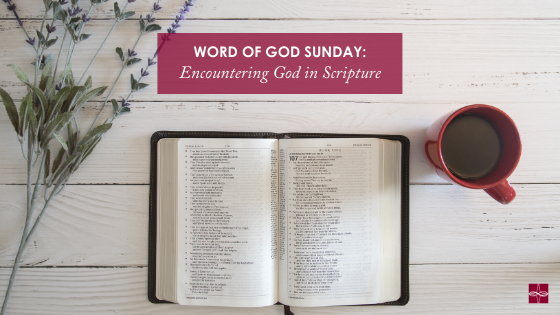
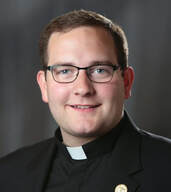
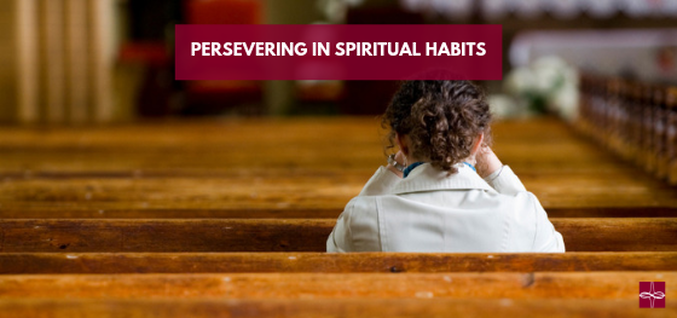

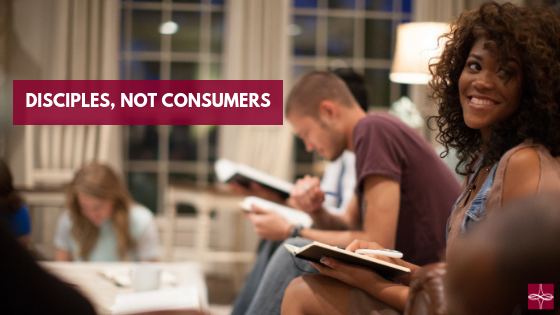

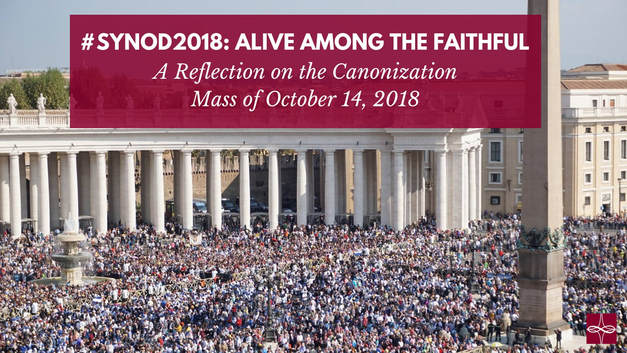
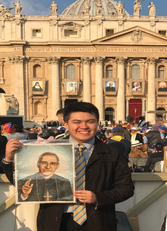
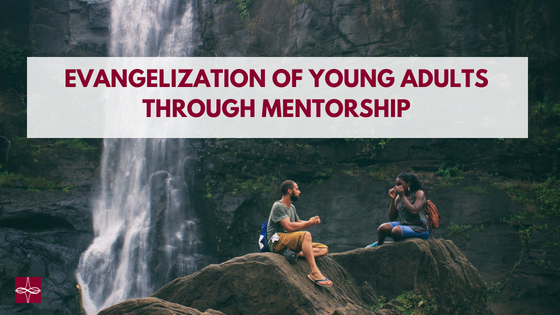

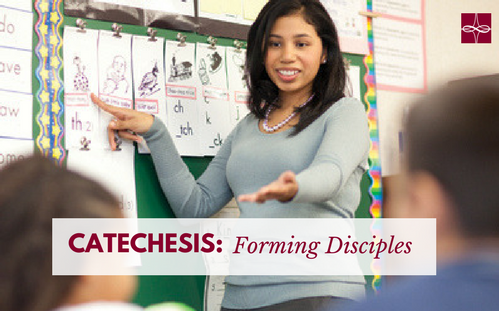





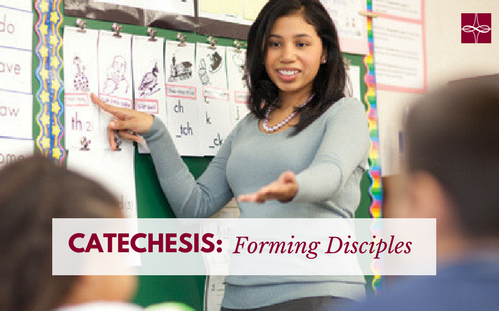

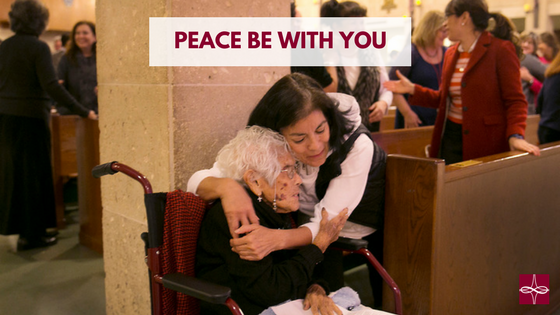

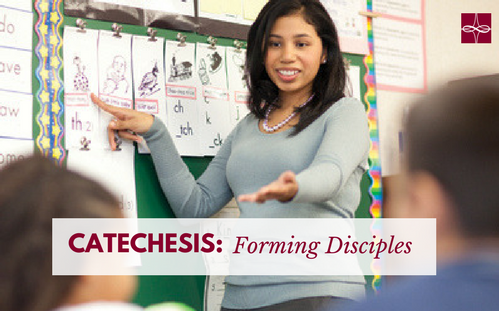

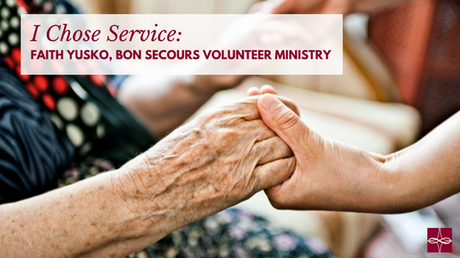
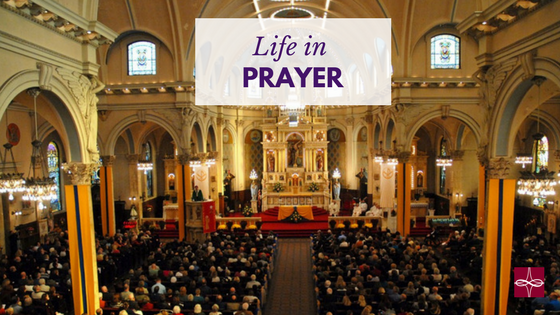

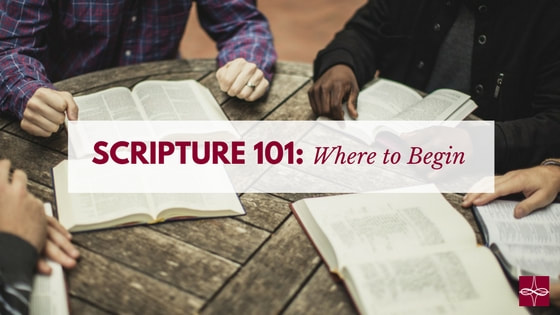
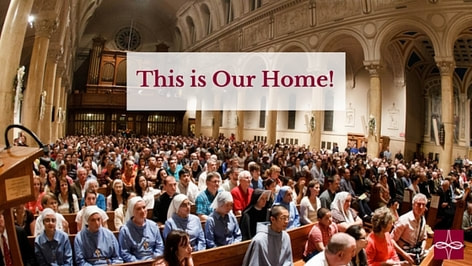

 RSS Feed
RSS Feed